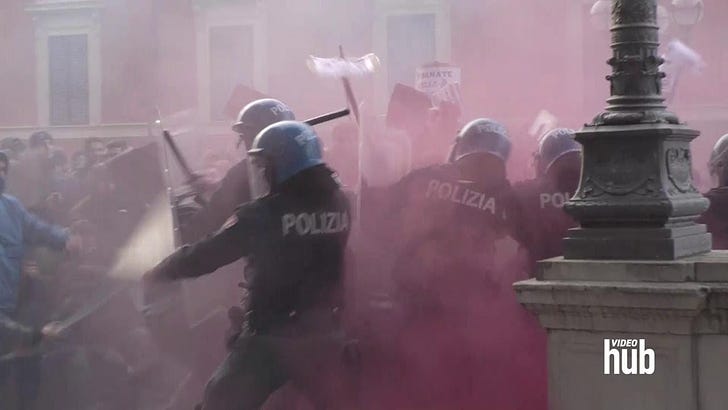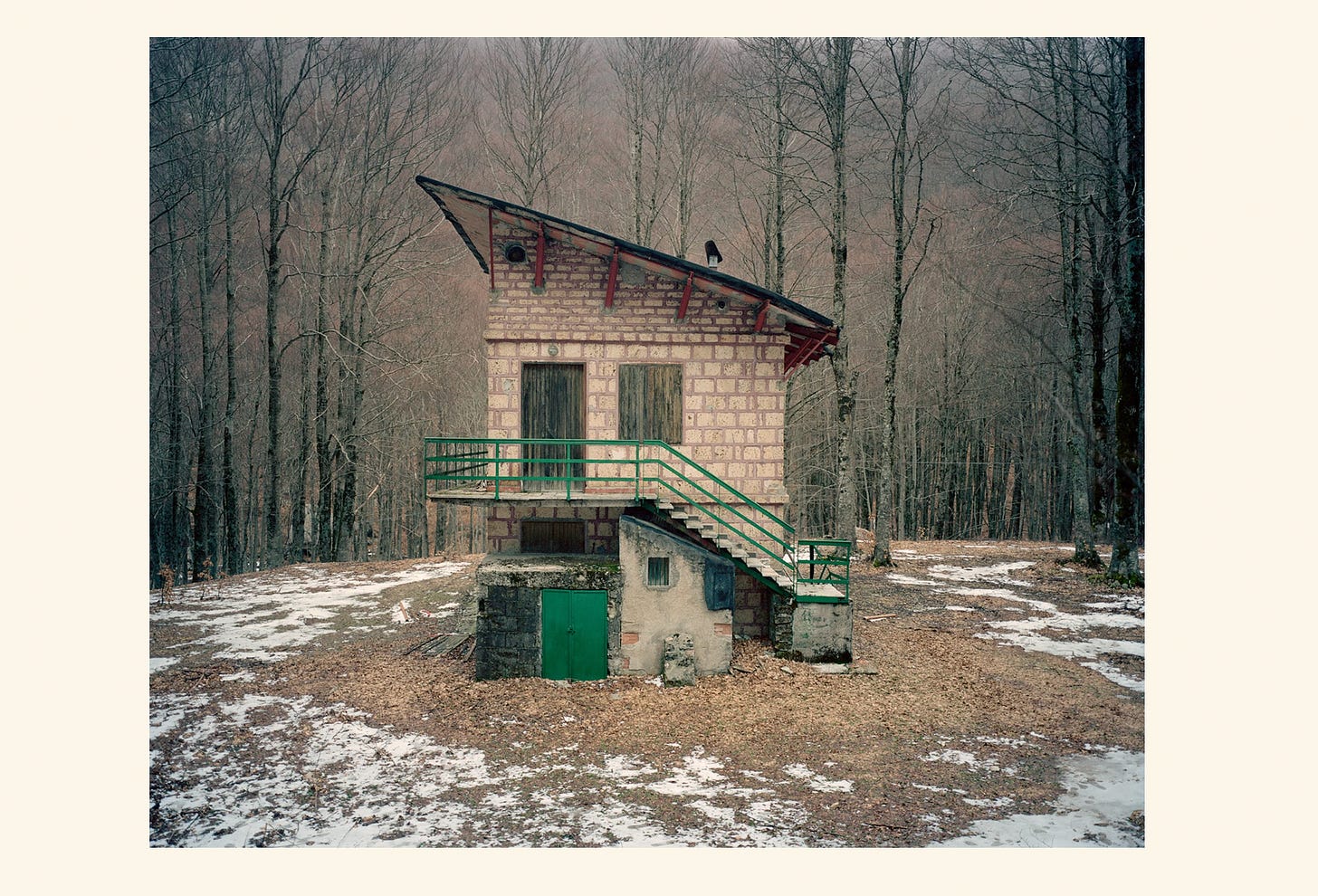Last Saturday the centre of Bologna was scene to violent clashes when anarchist groups and social centre activists attempted to ambush a march by neo-fascist groups on the corner of parco della montagnola. Videos have been circulating like wildfire on social media showing hooded figures dressed in black, punching and kicking police officers, who responded, in turn, with brutal force. This is, to be honest, a regular ritual in the Emilian capital; something that happens, rather perversely, a few times a year. What makes these events different, however, is the reaction of the authorities. In general, these things follow a script: a few dozen are injured on all sides, arrests are made, and the battle moves to the courts. This time the government has upped the ante. Immediately after the events, the DIGOS police requested CCTV footage to identify those reasonable for violence. Tellingly, however, they only requested footage focused on the “leftist antagonists.” The fascist thugs, meanwhile, who intimated passers-by, chanted racist slogans, and who also clashed with officers, have seemingly been given a free pass. The authorities are also escalating their attacks on the social centres themselves. Matteo Salvini has called for “these places, filled with red parasites, communist deliquents and criminals to be closed immediately”, and many of his colleagues are joining the chorus. This is a serious escalation. Social centres are, primarily, spaces for debate, music and culture. And while it’s true that violent minded individuals may attend some events in their walls, they’ve represented a cornerstone of Italian anti-fascism since WWII. With elections in the region on 17 November, and the left far ahead in the polls, Meloni’s administration is clearly seeking to exploit the crimes of a minority, to damage the progressive campaign and dampen grassroots support. No wonder far-right extremists are feeling so emboldened.
And it's not just the social centres. If you’ve been following Italian current affairs over the past couple of years, you’ll know that the current government has no qualms whatsoever about deploying censorship laws to intimidate its critics. This week, the teacher and journalist Christian Raimo found himself in hot water when he used a panel appearance to criticise the education minister Giuseppe Valditara. “Inside [the man’s] ideology one finds all the worst traits immaginable: quackery, a resurgence of classist, sexist humiliations,” said Raimo, “[Valditara] is front stage of the enemy world and he must be hit there, like the rebel alliance hit the Death Star." Taken in context, Raimo was speaking about policies, ideas and proposed curriculum reforms. The government, however, has chosen to interpret his words as a form of slander. Over the weekend, officials activated article 13 of the new “codice di comportamento dei dipendenti del ministero dell’istruzione (2022)” which means, as I write this, Raimo is facing three months suspension from his teaching job, and a temporary 50% pay cut. This is a dramatic overreach of authority if ever there was one, and yet another example of this administration’s staggering cowardice. What else to say then, but solidarity with Raimo and the dozens of lawyers mobilizing to contest the decision.
Already dreaming about an Italian winter escape? A cabin in the mountains perhaps? Well, the town of Bormio might be a spot to consider. This week, Yolanda Zappaterra penned a passionate celebration of this medieval settlement which is located in the Valtellina Alps, a three-hour drive north of Milan. The obvious draw here is skiing; Bormio, after all, is a popular sports hotspot for local Lombardans and it’s even due to host a portion of the Cortona Winter Olympics which take place in 2026. For non-skiers such as myself, however, there’s thankfully much else to do. The hiking trails are, apparently, well-organized and markets and shops are abundant. There are agriturismi, sagre, and plenty of community events for residents and tourists alike. The town is also home to several hotsprings and spas, including the stunning and surprisingly affordable QC Terme Bagni Vecchi which apparently features Roman baths and tunnels, a steam cave excavated, a fir-wood sauna and a salt grotto. “Bormio feels ancient, timeless and, at least until next year, far from the ski-mad crowds,” writes Zappaterra. Sign me up!
Arts and Culture: Lost in the Clouds
The Campania-born photographer Vincenzo Pagliuca has got a new book out this week called Mónos in which he captures the eerie beauty of abandoned homes in the southern regions of the Italian mezzogiorno. These shots are about as far away as you could imagine from the crystalline seas and picture perfect trulli you’ll find in most tourist depictions of the South. Pagliuca set out in winter, when even this sunny part of the Mediterranean takes on a bleak aspect, in order to document “an archetypal image of intimacy, [to invite] us to reflect on the psychological significance of home for human beings”. At first glance, these images might not seem like much. Most are grey, bleak, sallow. As you flick through the collection, however, the eye warms to these spaces, and the viewer learns to situate these structures for what they are: human defences against a harsh landscape. Despite their makeshift nature, and “ugliness”, these homes become totems of the warmth, joy and community that is now, in Italy, as everywhere, under threat. Mónos is an unusual and subtle project which defies just about every stereotype one might have about Italy. Find out more, and browse some prime selections, over at Colossal magazine.
Bolognese band Gaznevada are the undisputed titans of the Italian underground music world. Founded in the mid-70s, amidst the turmoil of the anni di piombo, the band has taken on numerous incarnations over the years, leading avant-garde experimentations in punk, alt-rock, psychedelia, Italo-disco and new wave to name just a few genres. This month the filmmaker Lisa Bosi released a feature length documentary about the group called ‘Going Underground’ which tells the story of how this rowdy collective of working class men traversed the squats and heroin dens of the Emilian capital to produce some of the most exciting music ever to have come out of Italy. The personal stories of the members are, without exception, brutal; addiction and violence are, sadly, integral to the band’s process and the community they developed together. Bosi admirably narrates this stark reality without romance and without downplaying the collective trauma that is so intimately entwined with four decades of energetic work. This one’s a must watch, so keep an eye out for screenings at a cinema near you soon.
Recipe of the week: fennel risotto with scallops
I was in Venice last week to catch the last days of the Art Biennale, and, of course, to indulge in my annual gastronomic gorging of cicchetti, tramezzini, polpette, crostini and so on. It was a great couple of days, and I ate and drank well. Nevertheless, I was struck, as I have been in the past, by how hard it is to find a good place for dinner in the city. Venice is an expensive place in general, and a sit-down down meal often costs two to three times more than the rest of Italy. Returning home I therefore felt compelled to recreate the real tastes of the lagoon food as a kind of culinary postcard to mini-break. What better choice, then, than Diana Henry’s nifty new recipe for a white fennel risotto topped with sautéed scallops? This is the kind of thing that would set you back about 30-35 euros in a restaurant, but which home cooks whip-up with cheap produce from the Rialto market on a weekly basis. Henry is no casalinga and she makes a few non-traditional decisions here: adding cream instead of cheese for the mantecatura, lemon juice for acidity and even a garlic glove! I can attest that the result is, nevertheless, delicious, and a great way to replicate a fine dining experience in your own kitchen without breaking the bank. So here’s the link.
I’m Jamie Mackay, a UK-born, Italy-based writer, working at the interfaces of journalism, criticism, poetry, fiction, philosophy, travelogue and cultural-history. I set up ‘The Week in Italy’ to make a space to share a regular overview of the debates and dilemmas, innovations and crises that sometimes pass under the radar of our overcrowded news feeds, to explore politics, current affairs, books, arts and food. If you’re a regular reader, and you enjoy these updates, I hope you’ll consider becoming a supporter for EUR 5.00 per month. I like to think of it as a weekly catch-up chat over an espresso. Alternatively, if you’d like to send a one-off something, you can do so via PayPal using this link. Grazie!






